There are no family portraits in the history of Japanese photography quite like Masaki Yamamoto’s Guts (2018). Exhibiting 92 brilliantly blunt fly-on-the-wall photos of his seven-member family during their cluttered, 18-year tenancy in a one-room apartment in Kobe, Japan, the book offered a unique and unashamed view of domestic life amongst towering heaps of laundry, dirty dishes and newspapers.
Although Masaki’s family has since scraped together enough money to rent out a roomier detached house not far from their previous dwelling, in the afterword to the collection, the photographer drew the unexpected connection between cramped tenancy and familial unity. “As we grew up, we had different experiences of being bullied, socially withdrawn, sick, badly behaved and so on. These experiences intertwined with the Yamamoto family’s history and are what makes up our lives as well as our bonds today.”
This emotional indebtedness to the old home can now be seen on the bathroom walls of the family’s new home. “My mother hung up photographs from Guts as a way of honouring the spirit of our beloved apartment,” Masaki says. The Yamamotos, his hotly-anticipated sequel with Zen Foto Gallery, documents his family’s day-to-day life in their new home. “Everything is more comfortable,” Masaki says. “Both the toilet seat and the water for washing dishes are warm in the winter!” However, even though each family member can now enjoy the luxuries of having their own room, the photographer’s lens continues to fly in the face of such newfound privacy. Masaki shows us that the Yamamotos’ best memories are made in company: bathing, sleeping, playing board games, cutting each other’s hair and calling in the New Year by slurping up soba noodles.
From Kobe, Masaki chats about life at home and the future of the Yamamotos.
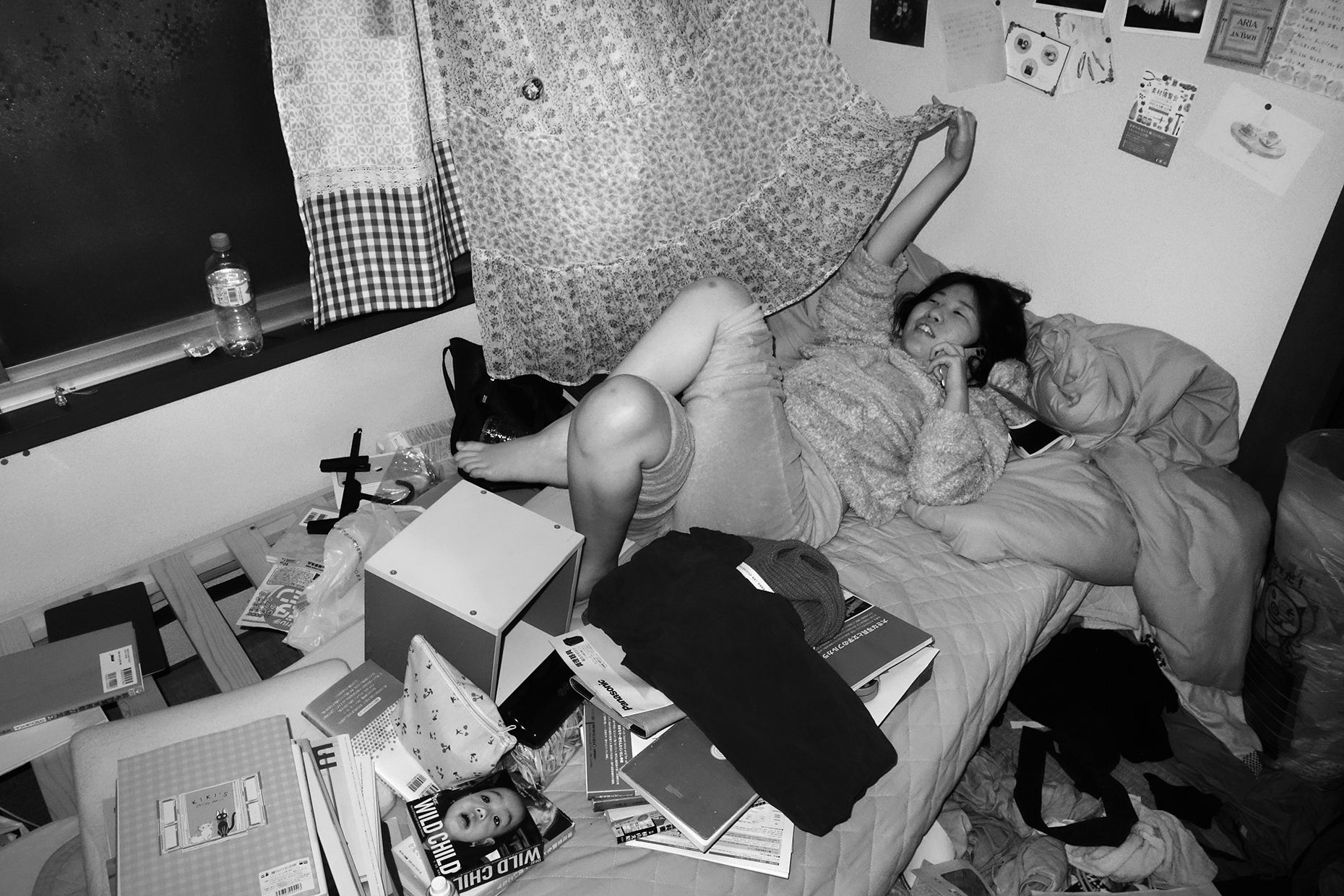
Hi Masaki! Can you introduce your parents please?
Hi! So, my father is a truck driver and he loves gambling, chess and YouTube. Apparently, his condition prevents him from taking baths, so he only showers, and bathes about twice a year. My mother works as a cashier at a supermarket. She has been a member of the Japanese Buddhist movement Soka Gakkai for 40 years, and she is very into Korean dramas. She is not good at tidying up and can be messy at times, but she is very cheerful and nice in nature.
Tell me about your two sisters.
My younger sister is on the autism spectrum and has a mild learning disability, so she receives some benefits. She loves picture books and “Boys Love” novels, and she prioritises her rabbit over everything. My youngest sister now lives in Osaka with her husband, who is French and works as a full-time office clerk. She loves fashion and sweets and is very alert to the latest trends.
How about your brothers?
My elder brother manages a karaoke bar. He has been living alone after graduating from high school. We don’t know much about him since we hardly talk to him, but he comes home a few times a year with gifts for our family. My younger brother works at McDonald’s. He was born with many illnesses, and he gets carried away very easily but he has a strong sense of justice and works really hard.
Lastly, tell me about you!
Well, I work part-time jobs here and there while I take photographs. I like fishing and my dream is to buy a car one day and travel around Hokkaido.
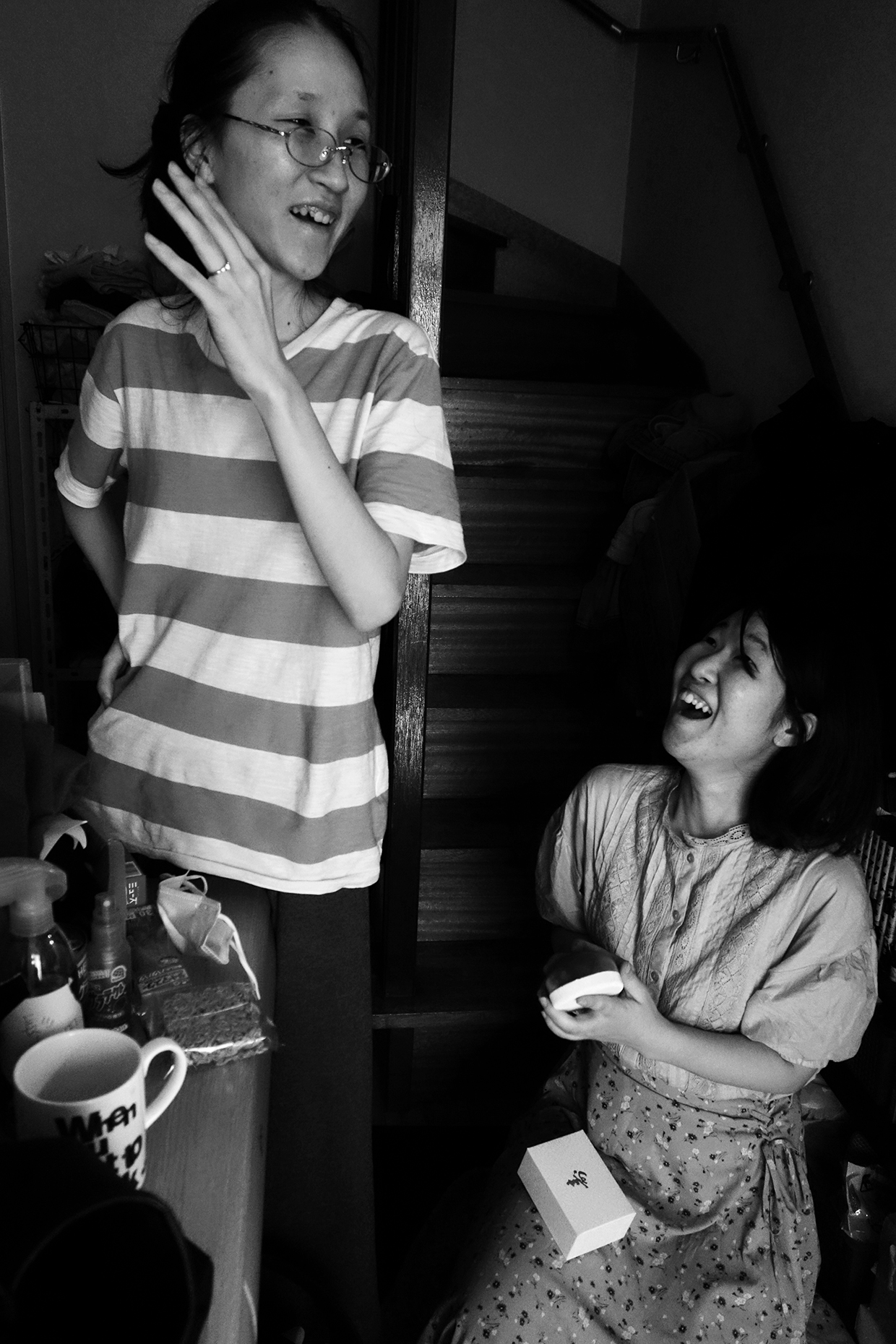
In the afterword to Guts, you wrote of your old, battered apartment: “I have come to realise that this is my origin and where I will always return to.” What was it like leaving?
We did everything ourselves, including the carrying of all our boxes and furniture, so it was pretty difficult. We had so much stuff which we were super sentimental about, but we were more worried about whether we would have to pay for repairs on our old apartment.
What’s the new house like?
I would be lying if I said it didn’t have many flaws. For example, the house is tilted and the floor is rotten. It was hard to get used to it at first, but now everyone seems to like it so much. Together, we are always saying: “No matter what, we will never give up this home!”
You have a garden now – who spends the most time out there?
My mother. She planted rosemary, chamomile and tulips. We harvested corn and tomatoes too but my mother has killed almost all of them.
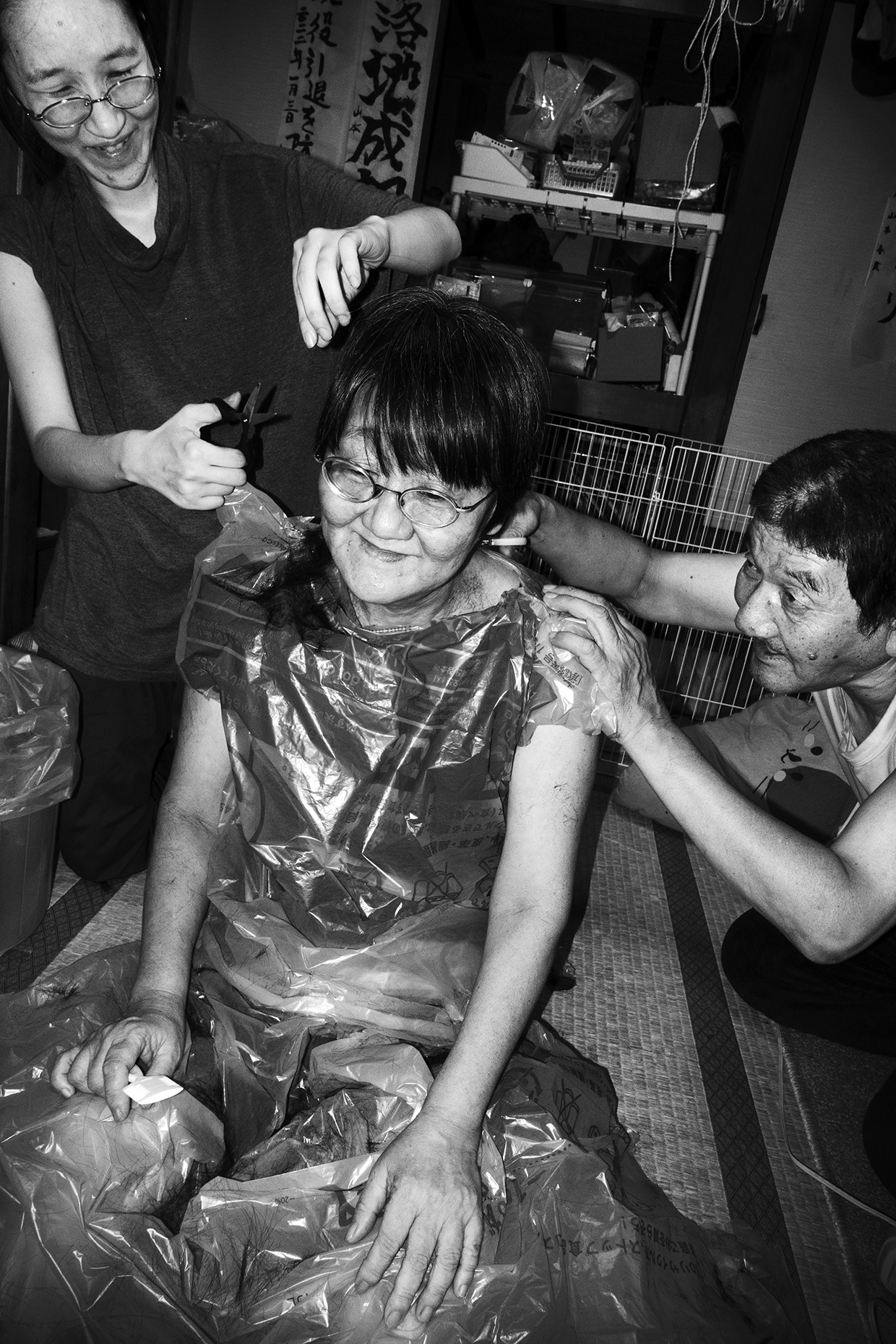
Oh, I’m sorry! You all have your own rooms now, right?
Yes! My younger sister said, “I like being able to turn the lights off when I go to bed.” Each of the siblings felt differently about the inconvenience of not having any privacy when we were living in the old apartment. Now, we enjoy our own privacy because we are less likely to bother or be bothered by each other.
Have you adapted your shooting practice now that you’re occupying a more spacious dwelling?
I haven’t changed the way I shoot. It might seem like I was shooting much closer in my previous work, but the timing and content I take are almost the same. I think there are some photographs that are unique to the detached house, but I believe the nature of the Yamamoto family remains the same, even if our environment has changed.
I love how you never wince at family nudity or the intimacies of self-care, such as bathing, shaving and talcum powdering.
No one I know shares the same kind of intimacy with their family members, but I don’t think it is that unusual. Nowadays, in Japan, it may not be as common as it used to be in the past, but I am sure there are still many families who are living like this. It’s normal for us, but what is special and normal for a family is of course relative. I just want to capture the many happenings of the home as they are, with honesty, love and a good dose of self-deprecating humour.
I can see that your youngest sister got engaged!
Yes! Last year, she got married and moved out.
Do you ever contemplate on the future of the Yamamoto family?
I can foresee that we will probably have to take care of our ageing parents in the future. I think we will all be apart, eventually.
‘The Yamamotos’ by Masaki Yamamoto is published by Zen Foto Gallery.
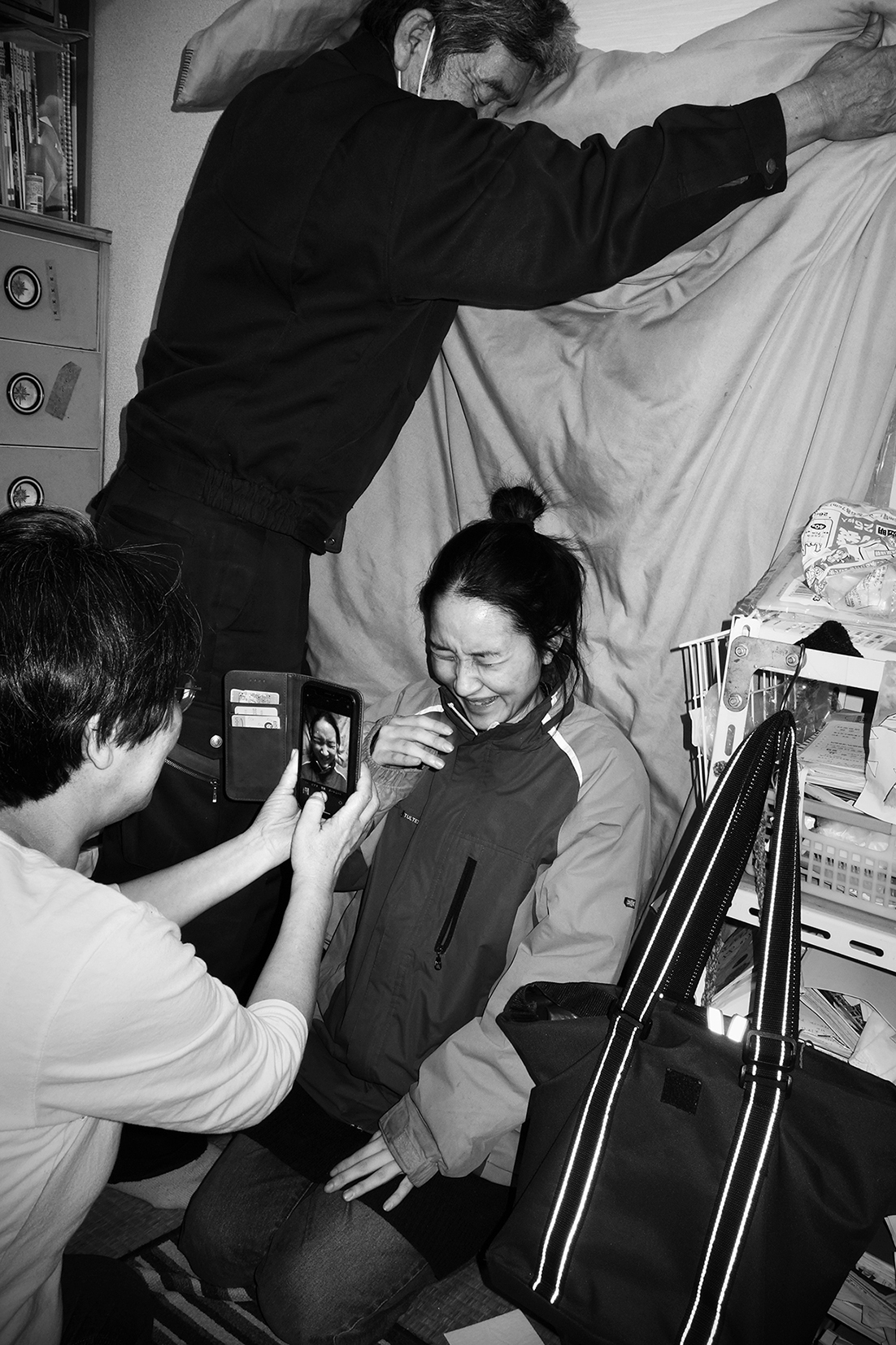
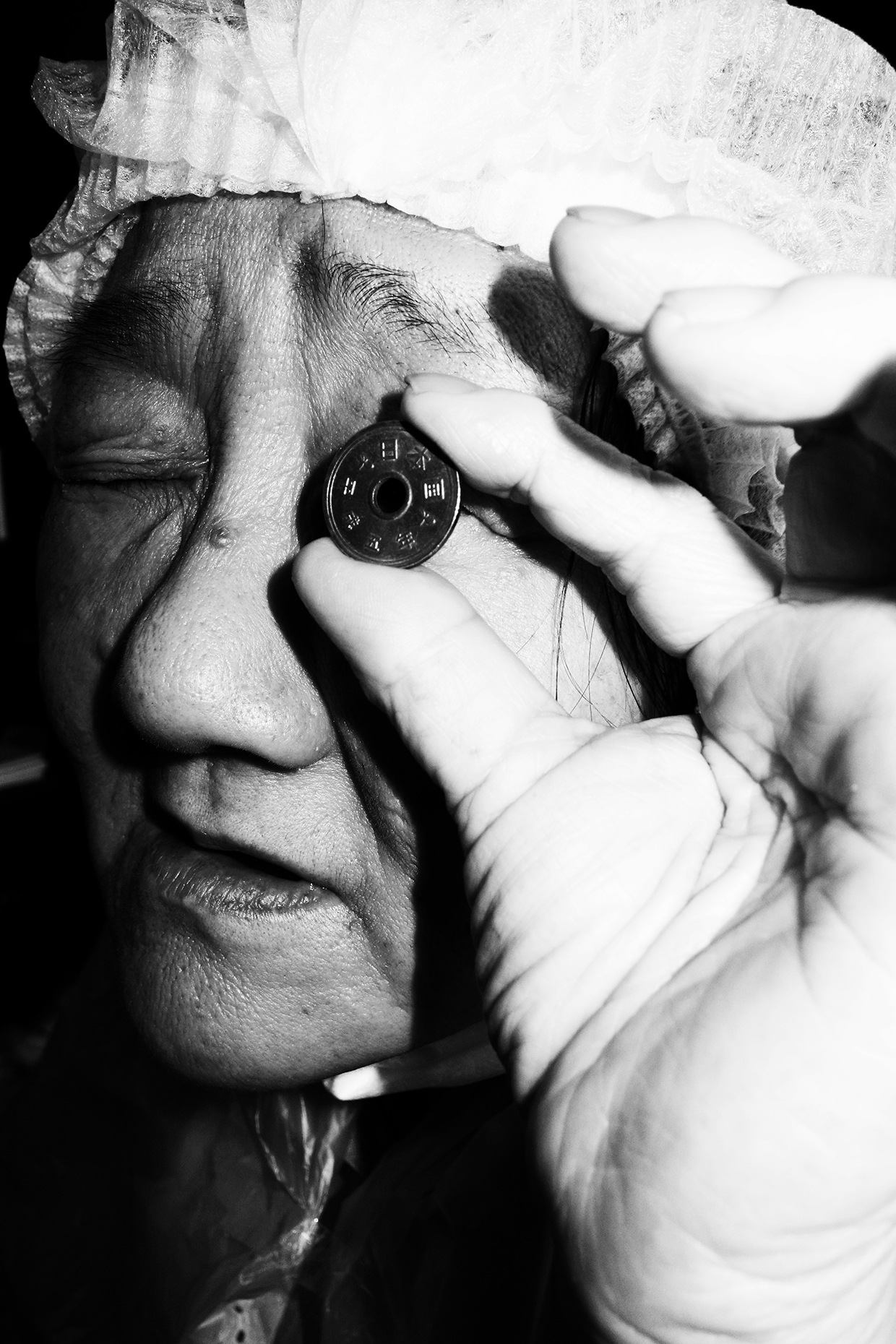
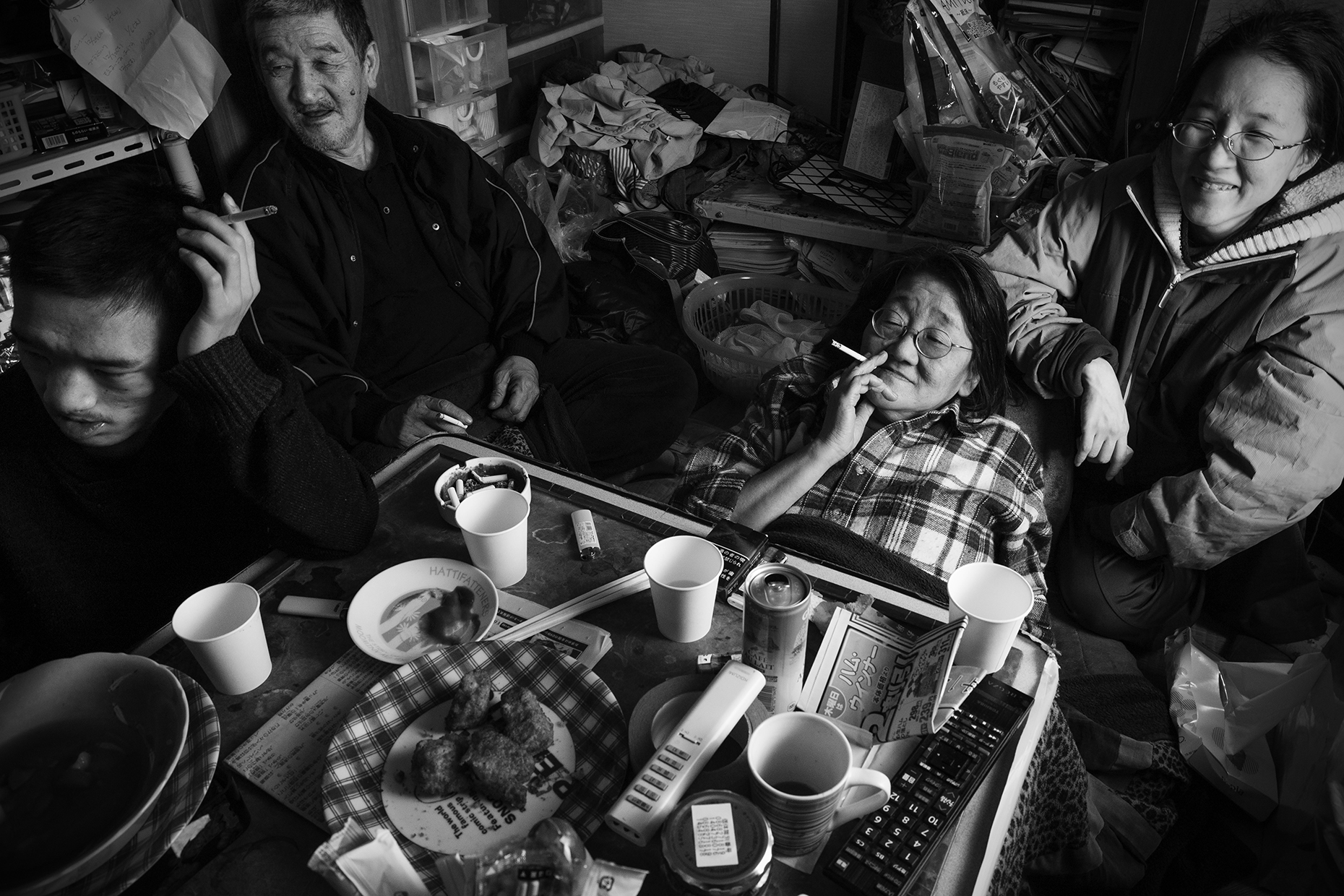
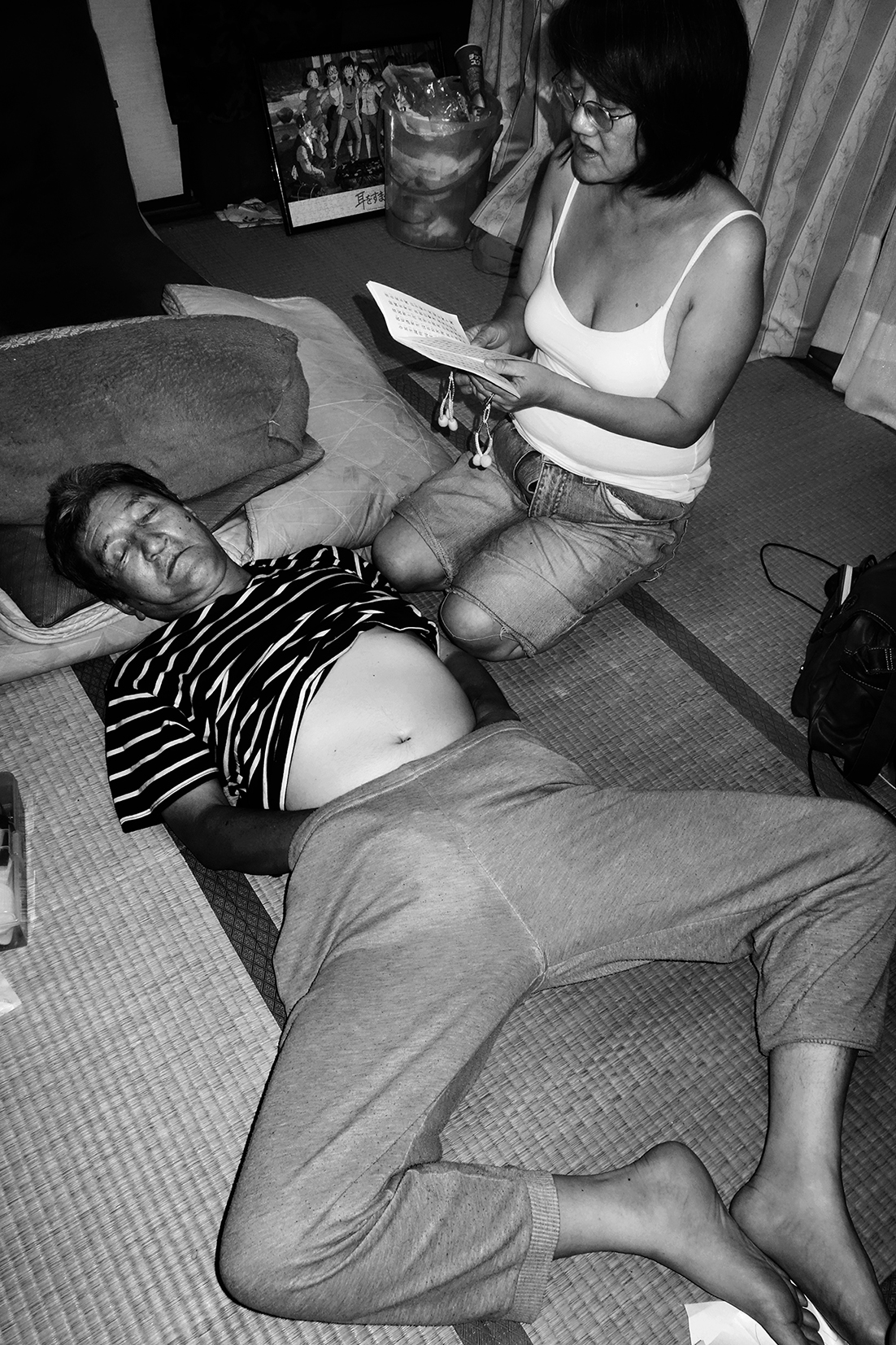
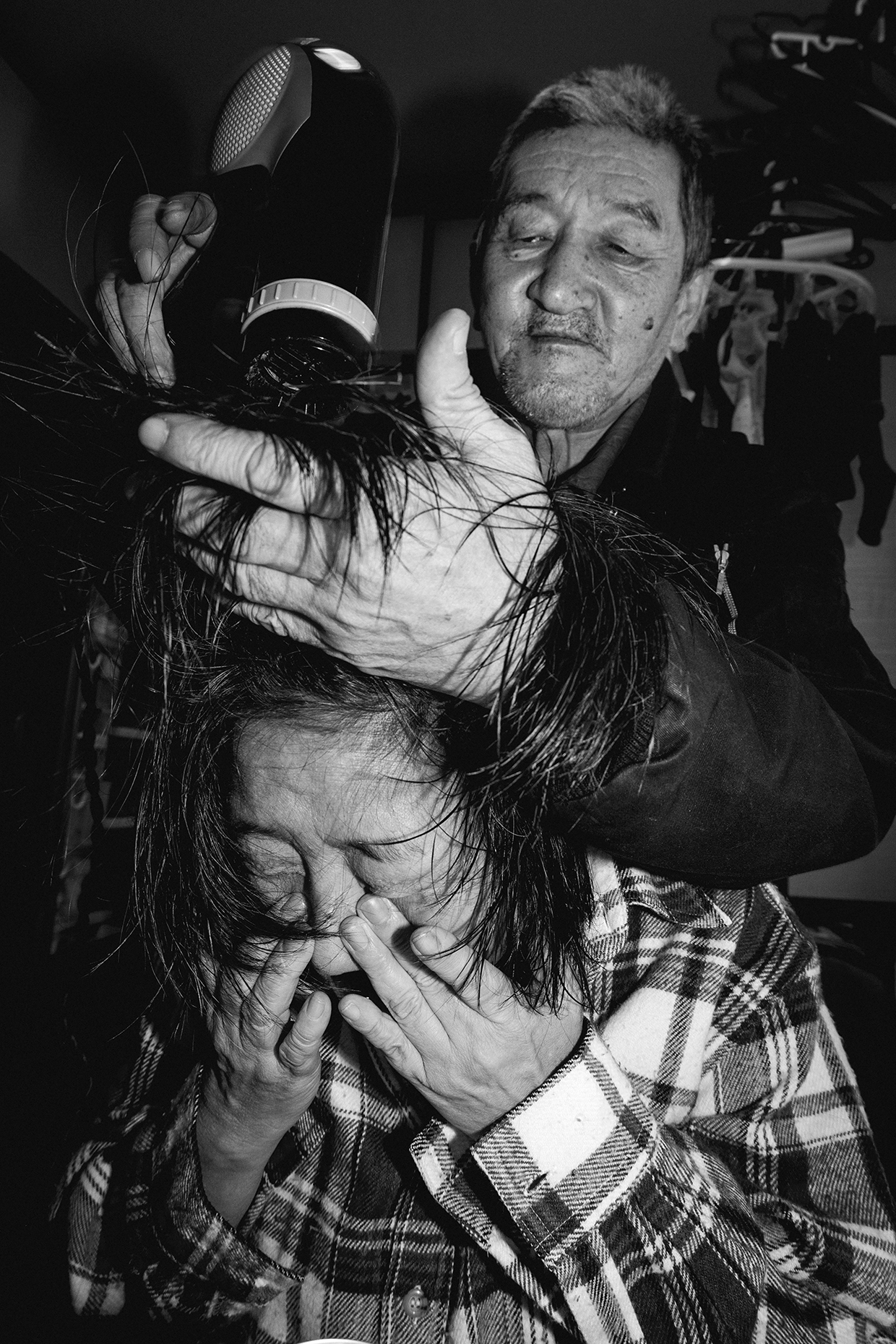
Credits
All images courtesy of Masaki Yamamoto


